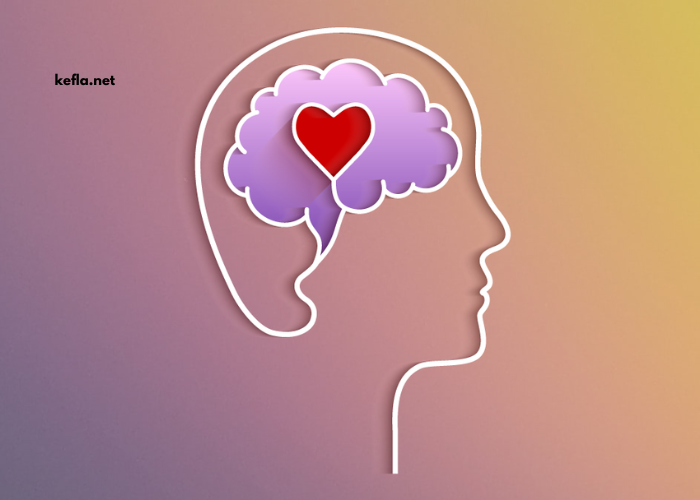In today’s fast-paced world, where demands from work, family, and social obligations seem endless, taking care of your mental health can often feel like an afterthought. However, it’s more crucial than ever to make mental health a priority to live a balanced and fulfilling life. This article will guide you on how to maintain your mental health despite the distractions, stresses, and pressures of a busy life.
Understanding the Importance of Mental Health
Mental health refers to a person’s emotional, psychological, and social well-being. It affects how we think, feel, and act, influencing how we handle stress, relate to others, and make choices. Good mental health helps you cope with the daily stresses of life, work effectively, and build strong relationships with others. It’s just as important as physical health and often interlinked with it, as both contribute to overall well-being.
The Rising Importance of Mental Health in Modern Times
Today, the conversation surrounding mental health is more prominent than ever, with more individuals acknowledging the impact that mental wellness has on their lives. Social media, the rise of remote working, and global uncertainties such as pandemics and economic pressures have led to a surge in mental health challenges. As a result, people are actively seeking ways to safeguard their mental well-being and build resilience.
The Challenges of Maintaining Mental Health in a Busy World
A busy world filled with tight deadlines, constant connectivity, and endless responsibilities can create a breeding ground for mental health issues. Stress, anxiety, and burnout are common struggles faced by many. While modern advancements have made life easier in many ways, they have also come with increased expectations and pressures.
Some of the most common challenges people face in maintaining mental health in today’s world include:
- Work-related Stress: Many people work longer hours, have multiple jobs, or feel pressure to perform at a high level, leading to burnout and mental exhaustion.
- Information Overload: With the rise of technology and social media, individuals are constantly bombarded with information, which can lead to feelings of overwhelm and anxiety.
- Lack of Personal Time: With so many obligations, it can be hard to find time for self-care, which is critical for mental health.
- Isolation: While connected online, many people experience feelings of loneliness and disconnectedness, leading to mental health struggles.
Despite these challenges, there are strategies and techniques that can help maintain mental health while navigating the chaos of daily life.
Strategies for Maintaining Your Mental Health in a Busy World
1. Prioritize Self-Care
In a world that often demands more than we can give, self-care should be a top priority. Self-care involves any activity that helps you take care of your physical, emotional, and mental health. Simple actions like taking time for a warm bath, meditating, journaling, or spending time outdoors can help recharge your mind and body.
Why Self-Care is Essential
When life gets overwhelming, self-care is the best antidote. It helps to reduce stress, prevent burnout, and improve overall well-being. Moreover, consistent self-care practices help foster resilience, allowing you to bounce back from difficult situations and maintain emotional stability.
2. Set Boundaries
One of the main contributors to stress in a busy world is the inability to say no. Setting boundaries is crucial for mental health, as it prevents overcommitting and allows for personal space. Setting clear limits on work hours, social engagements, and even digital interactions can create the mental space you need to unwind and recharge.
How to Set Effective Boundaries
- Know Your Limits: Be aware of your energy levels and emotional capacity. If a task or commitment feels overwhelming, it’s okay to decline it.
- Communicate Clearly: Be assertive in explaining your boundaries to others. Be honest about what you can or cannot handle without feeling guilty.
- Stick to Your Boundaries: Once you’ve set them, honor your commitments to yourself. This will not only protect your mental health but also teach others to respect your limits.
3. Practice Mindfulness and Meditation
Mindfulness involves being present in the moment and fully aware of your thoughts and emotions without judgment. It has been proven to reduce stress, increase emotional regulation, and improve overall well-being. By focusing on the present moment, mindfulness can help you detach from the noise of the outside world and gain clarity of mind.
How to Incorporate Mindfulness
- Deep Breathing Exercises: Simple deep breathing exercises can instantly calm the nervous system, reduce anxiety, and promote relaxation.
- Guided Meditation: Apps such as Headspace or Calm provide guided meditations for beginners and experienced practitioners alike.
- Mindful Walking: Taking a walk outdoors while focusing on your surroundings—such as the sights, sounds, and smells—can bring you into the present moment.
4. Cultivate Healthy Relationships
Healthy relationships play an important role in maintaining mental health. Being surrounded by supportive and positive people can increase feelings of happiness and reduce stress. In contrast, toxic relationships can drain your emotional energy and increase feelings of anxiety and depression.
How to Foster Positive Relationships
- Quality Over Quantity: Focus on nurturing a few deep, meaningful relationships rather than spreading yourself thin across multiple acquaintances.
- Open Communication: Healthy relationships thrive on open and honest communication. Don’t be afraid to express your feelings, needs, and concerns.
- Avoid Toxic Influences: Recognize when a relationship is causing harm to your mental health. Setting boundaries and distancing yourself from toxic people is necessary for your well-being.
5. Get Moving – Physical Activity is a Game Changer
Exercise is not only good for your physical health but also your mental health. Regular physical activity can help release endorphins, the brain’s “feel-good” chemicals, which promote positive mood and reduce stress. Furthermore, exercise can improve sleep quality, boost self-esteem, and help you manage anxiety.
Benefits of Exercise for Mental Health
- Reduces Stress and Anxiety: Physical activity reduces the production of stress hormones like cortisol while stimulating the release of endorphins.
- Improves Cognitive Function: Regular exercise improves memory, concentration, and decision-making skills, helping to sharpen mental clarity.
- Promotes Better Sleep: Exercise helps regulate sleep patterns, making it easier to fall asleep and stay asleep.
6. Learn Time Management
In a busy world, managing your time effectively can significantly reduce stress and prevent overwhelm. Time management allows you to be more productive, leaving you with more time for relaxation and self-care. By organizing your tasks and setting realistic goals, you can better navigate your responsibilities without sacrificing your mental health.
Time Management Tips for Mental Health
- Use a Planner or Calendar: Organize your day by scheduling tasks in advance. Break large tasks into smaller, more manageable steps.
- Prioritize Tasks: Identify urgent and important tasks and focus on completing them first, without the pressure of multitasking.
- Allow Time for Breaks: Incorporate short breaks into your schedule to recharge and prevent mental fatigue.
7. Seek Professional Help When Needed
Sometimes, maintaining mental health in a busy world can be too overwhelming to handle on your own. When the stress becomes unmanageable, or when you’re feeling depressed or anxious for an extended period, seeking professional help is a crucial step. Mental health professionals can provide guidance, therapeutic techniques, and support tailored to your specific needs.
The Benefits of Therapy
- Cognitive Behavioral Therapy (CBT): This type of therapy helps you understand the connection between thoughts, emotions, and behaviors and teaches you how to modify negative patterns.
- Stress Management: Therapists can help you develop coping strategies for stress, anxiety, and depression.
- Personal Growth: Therapy provides a space for self-reflection and personal growth, helping you better understand your emotions and reactions.
8. Digital Detox
In today’s digital age, many people spend significant amounts of time on their phones, social media, or emails. This constant connectivity can contribute to stress, anxiety, and feelings of inadequacy. A digital detox, which involves stepping away from screens for a set period, can help reduce stress and allow for more meaningful in-person interactions.
Tips for a Digital Detox
- Set Screen Time Limits: Use apps to limit your screen time or schedule specific hours for checking emails and social media.
- Engage in Offline Activities: Spend more time reading books, spending time outdoors, or engaging in hobbies that don’t involve screens.
- Create Phone-Free Zones: Designate areas in your home, such as the dining table or bedroom, as phone-free zones to promote real-life connections.
Conclusion
Maintaining your mental health in a busy world requires a proactive approach, including self-care, setting boundaries, and finding time for relaxation and exercise. By integrating mindfulness practices, cultivating healthy relationships, and seeking professional help when necessary, you can create a balance that allows you to thrive mentally, even in a hectic environment. Ultimately, your mental health is an ongoing commitment, and by prioritizing it, you’ll be better equipped to face life’s challenges with resilience and clarity.
Taking small but consistent steps toward improving your mental health can make a big difference in how you navigate the demands of daily life and maintain a sense of peace amidst the chaos.





